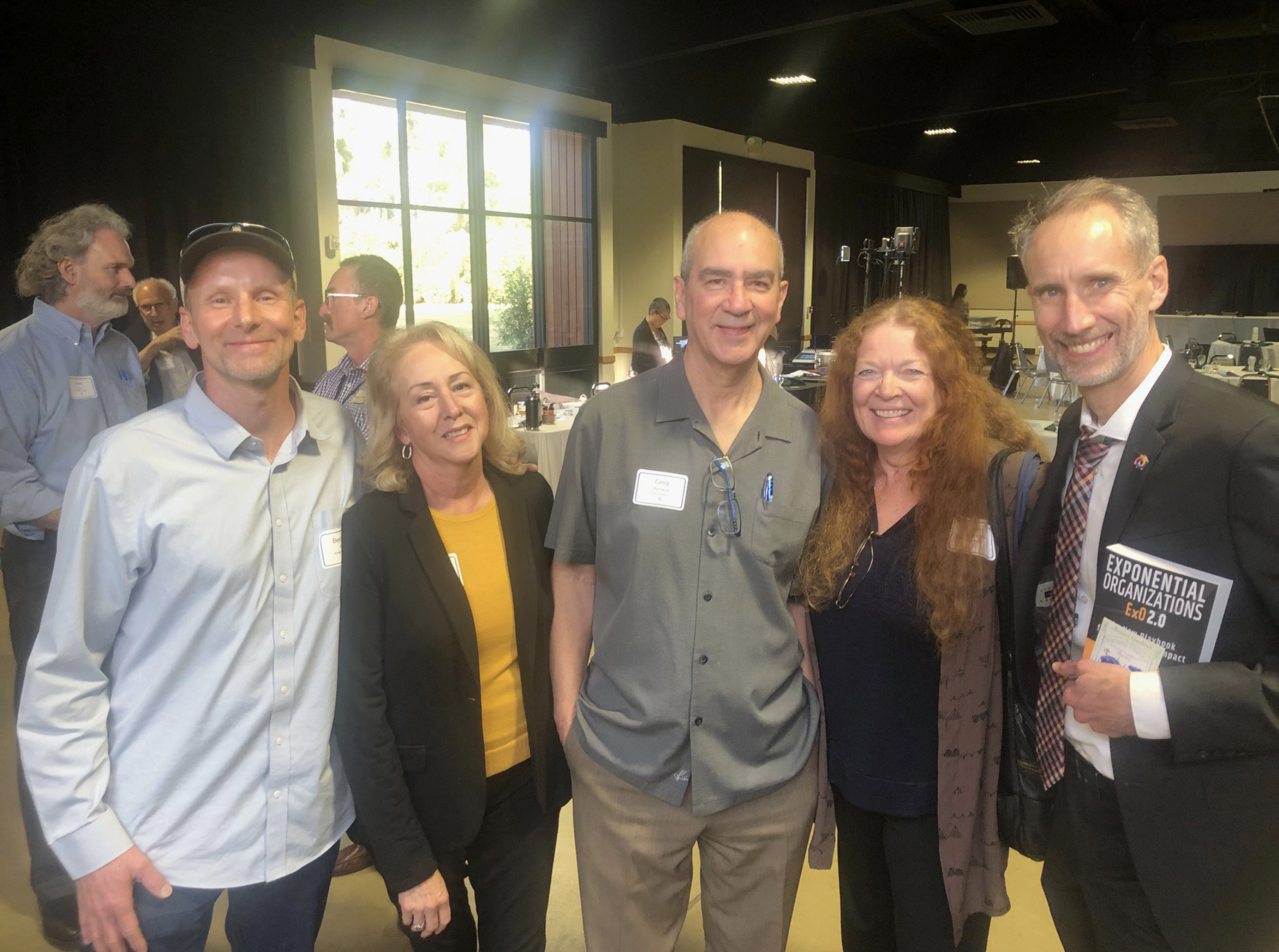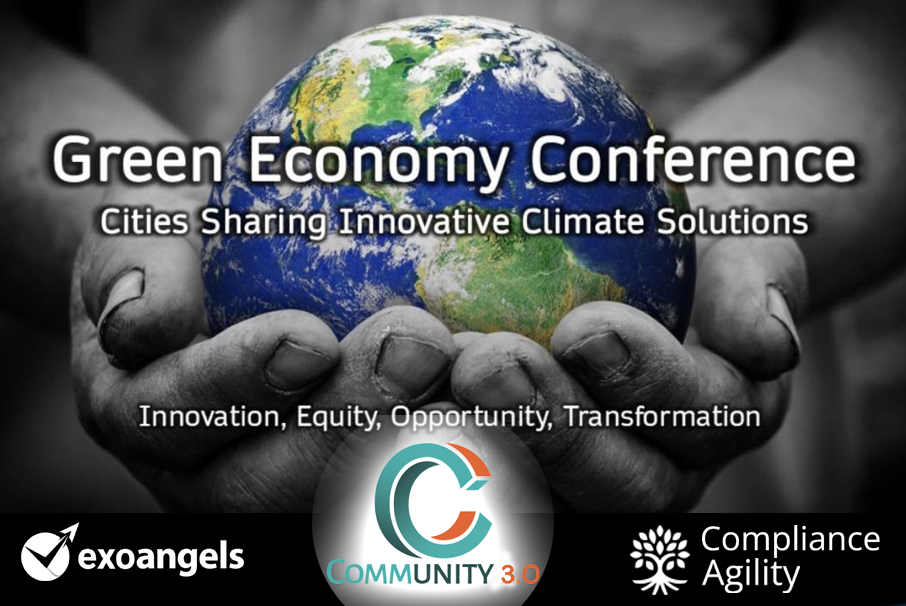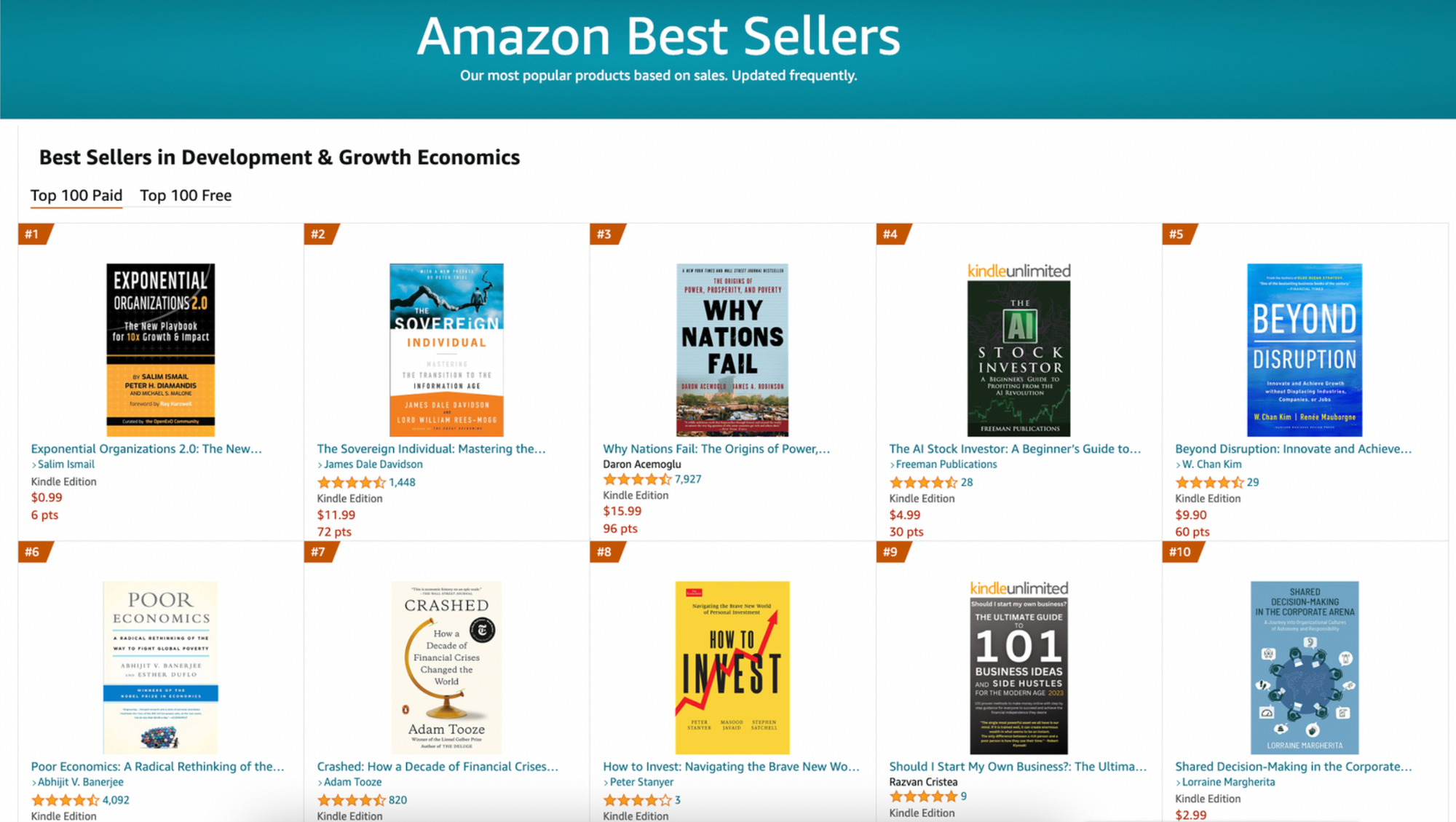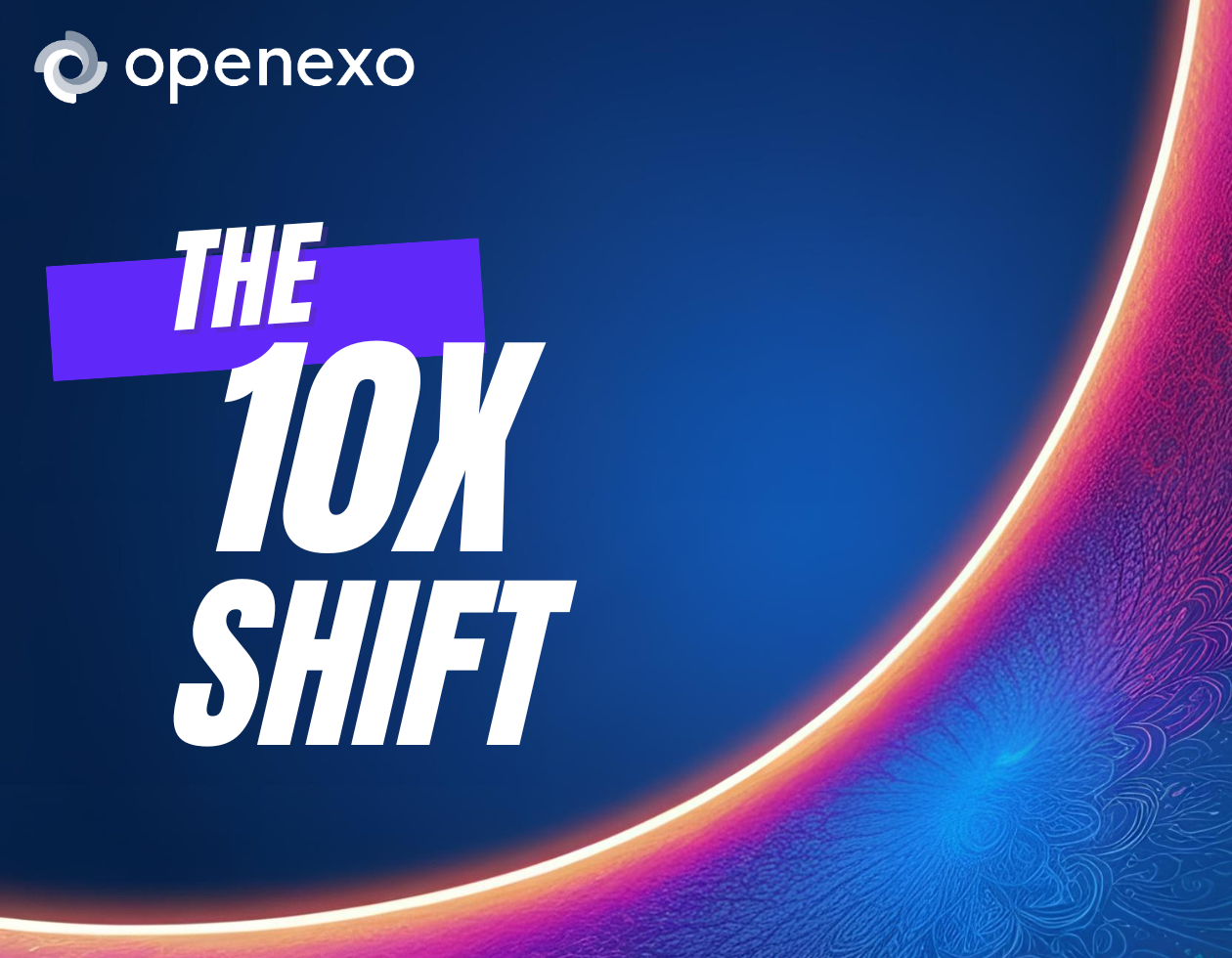
Exponential Transformation: Reimagining Our Future in the Age of Climate Emergency
We have entered into an era of extraordinary collaboration, a 'hive mind' if you will, where people are collaborating initially to avert the worst impacts of the climate emergency, biodiversity loss, and the threat of extinction.
Greg paints a compelling and urgent portrait of the challenges facing humanity in the Anthropocene era, the period during which human activity has been the dominant influence on climate and the environment. The executive summaries compared between 2023 with 2024 effectively sets the stage, outlining the speed of transformation underway as exponential technologies disrupt every aspect of our lives - from work to transportation to energy production. The sobering reality is that we stand at a critical juncture, where the stakes could not be higher in addressing the climate emergency.

This chapter is part of a larger book, Exponential Organizations in Action: Community-Curated Case Studies Transforming An Abundant Future, that showcases how the exponential organization (ExO) framework pioneered by Salim Ismail, Peter Diamandis and a community of curators can be applied by small and medium enterprises and entrepreneurs, not just Fortune 500.
[Excerpt from the chapter...
COMMUNITY 3.0X: An Exponential Community
Thriving Lives In Balance With Nature
We have entered into an era of extra-ordinary collaboration, a 'hive mind' if you will, where people are collaborating initially to avert the worst impacts of the climate emergency, biodiversity loss, and the threat of extinction. And together we will attract an extra-ordinary flood of funds into environmental solutions through an unprecedented array of collaborative experiments among likely and unlikely partners. Cities large and small around the world, asset managers linked globally, organization governance thought leaders, and exponential technologists are working together to address climate challenges and related economic and social justice issues. This should give all of us hope in the face of the existential climate challenge.
The unprecedented transparency brought upon by the internet will enable the public to force environmental solutions integrated with new economics and social justice remedies built into them. In the Earth For All: A survival guide for humanity, the books six main authors state on page one, "the long-term potential of humanity depends upon civilization - a wondrous, freewheeling, kaleidoscopic, inspiring, confounding civilization - undergoing nothing short of five extraordinary turnarounds within the coming decades." But the turnarounds they mention are formidable: ending poverty, addressing gross (economic) inequality, empowering women, making our food system healthy, and transitioning to clean energy. The goal of the book is to show you (the reader) "that this is indeed fully possible." Indeed, their solutions are based in science.
Earth For All asks the following pertinent questions: "Can we - meaning all people and peoples - come together to navigate this century? Can we take a collective leap in human development with courage and conviction? Can we overcome divisions, neo-colonial and financial exploitation, historic inequalities, and deep, deep mistrust among nations to deal with the long-term emergency? Can we achieve systemic transformation in decades, not centuries?" In his 2016 TED Talk, Al Gore asks the most important question of all, "will we change in time?" Underscoring the scant few years and at most decades in which to reverse global warming before irreversible planetary tipping points are passed. According to Johan Rockstrom and Owen Gaffney, contributing authors to Earth For All, we have already passed six of the nine tipping points outlined in their documentary, Breaking Boundaries with Sir David Atttenborough.
Such a collaborative needed to solve global challenges can be considered a 'hivemind' that can be imagined as 'group flow' as demonstrated by "a team performing at its very best, an incredible brainstorming session, a fantastic fourth-quarter comeback, or a band coming together and blowing the roof off an auditorium. It's also considered the most pleasurable state on earth," so says futurist Peter Diamandis, author of The Future Is Faster Than You Think. We are seeing the beginning of a 'rising consciousness' where we humans must work together to solve climate challenges that recognize no national borders or cultural barriers, however long-standing. This is what Diamandis calls "evolution by human direction," (p258) where exponential technologies focused on trying to solve environmental challenges morph into solving other grand challenges facing humanity, namely economic and social justice.
...End of chapter excerpt]
A particularly insightful aspect is the way the chapter builds upon the earlier case study on Leadership Pasadena. Apodaca's experience in empowering collaborative, forward-thinking leaders clearly informs the five key strategies of Community 3.0: Awaken, Engage, Mobilize, Accelerate, and Transform. These initiatives demonstrate a multifaceted plan to catalyze and scale sustainability efforts in true ExO Form.
For example, the chapter highlights how the Community 3.0 model is tackling critical issues like greenhouse gas reduction and waste management by convening experts from cities and municipalities. It also spotlights the powerful role of student-led projects in driving environmental change, and the importance of bridging these grassroots efforts to broader public engagement and action.

Unlocking the $130 trillion in climate investments through the GFANZ initiative emerges as a key priority, to be achieved through facilitating cross-sector collaboration and leveraging innovative frameworks like Exponential Organizations (ExO). The way the chapter weaves the ExO principles throughout the Community 3.0 initiatives - from data-driven decision-making to continuous experimentation - underscores the exponential mindset underpinning this work.
Particularly inspiring is the personal narrative of Apodaca's journey, and his willingness to dramatically shift course driven by a deep calling to address the climate crisis. This provides a model of the type of transformation needed, where personal transformation becomes an ongoing, sustainable practice rather than a luxury.
Overall, this chapter represents a powerful synthesis of the intellectual, emotional and practical dimensions of the climate emergency. By grounding the discussion in Apodaca's experience and drawing upon cutting-edge frameworks, the reader is left with a compelling vision for how to catalyze exponential change. As we stand at the precipice of an era-defining transformation, this work serves as an invaluable roadmap forward - one that will be further explored in the upcoming Community 3.0 Conference in November 2024.

See the complete chapter in:
Exponential Organizations in Action: Community-Curated Case Studies Transforming An Abundant Future
Birthed from the same decentralized community that catalyzed Exponential Organizations: Version 2.0 by Salim Ismail, Peter Diamandis, and Michael S. Malone, this audacious book charts an evolutionary path towards post-industrial abundance. It harmonizes exponential thinking with syntropic design principles and the collaborative ethos of web3, guided by the visionary ideas of our very own futurists.
Sign up for the pre-release of the Group Chapter Book built by the community for the community: https://exoangels.com/group-chapter-book/
About the Authors
Niki Faldemolaei https://linkedin.com/in/faldemolaei
Niki's portfolio includes transformative projects like Compliance Agility for SDG/ESG's, ExO Angels and the Extended Health Span Index, demonstrating her ability to reshape industries and drive impactful change.
Greg Apodaca https://www.linkedin.com/in/greg-apodaca-b115464/
My world came to a sop when I read that we humans were on a path to ecological disaster, that the drivers were of our own making, so I quit my job and committed myself to the cause of saving Earth as hospitable home for humanity.
Stewarded by ExO Angels
ExO Angels have deep ties to solving for global challenges. In recent years, there has been an increased focus on decentralized forms of social organization. This shift is in part due to the growing body of evidence that decentralized systems are more effective at meeting the needs of their members. When power is decentralized, individuals are able to make decisions that are based on the needs of their community rather than the top 1%. This leads to more equitable and sustainable societies.
One of the most important benefits of decentralized systems is that they give the female archetype a greater role in decision-making. When women are given sovereignty over their own communities, they are more likely to focus on the needs of their residents. This, in turn, leads to more sustainable and equitable societies. Decentralization is a powerful tool for promoting social justice and creating more livable communities. The time is now to embody the divine balance of nature's law.
#climateaction #environmentalimpact #sustainability #exponentialorganization #syntropicworld #communityengagement #exoangels

Immerse yourself in the game-changing ideas of OpenExO.
Begin your journey here 🎟️ExOPass & 📚Exponential Organizations 2.0
ExO Insight Newsletter
Join the newsletter to receive the latest updates in your inbox.








